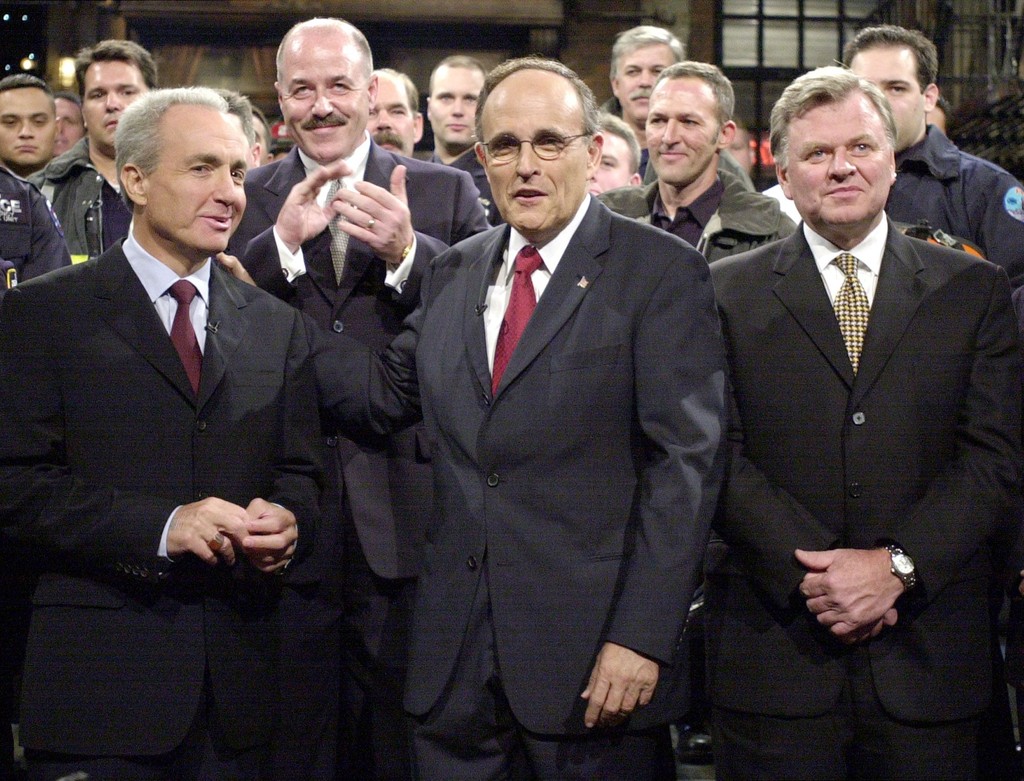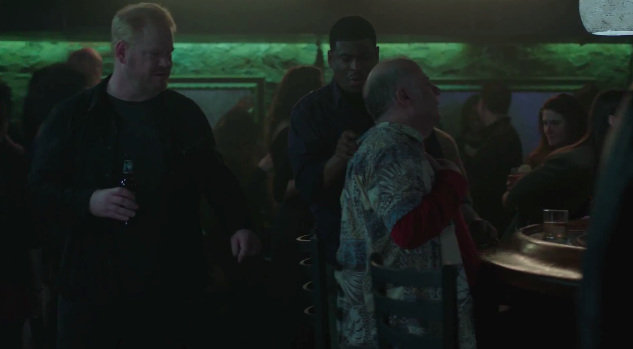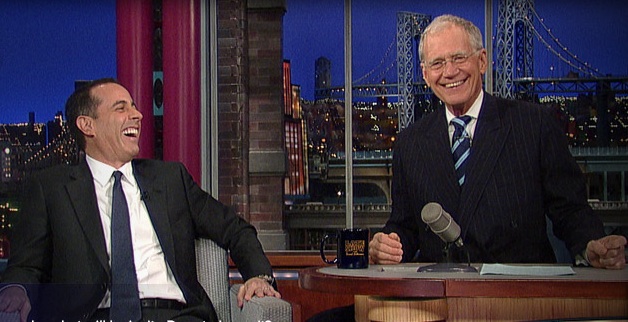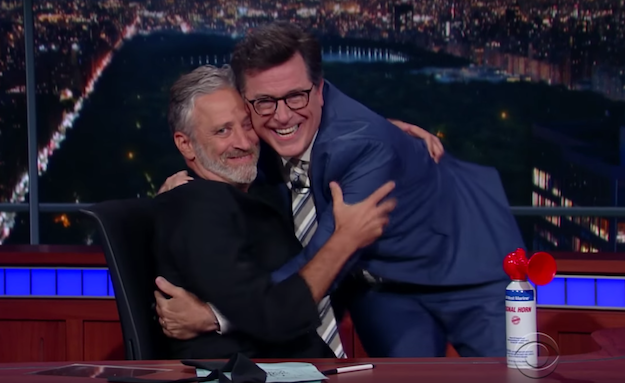Living in New York City, it’s difficult to get through a September 11 without thinking about what happened that day in 2001, and yet I hadn’t planned on mentioning it here. Then I saw that two-hour documentary on CBS, 9/11: Ten Years Later, which saw two brothers filming the FDNY’s Engine Company 7, Ladder Company 1 before, during and after the attacks. Just whoa.
And then I thought about it some more.
We all wondered back then about when and how we could get back to something approaching normal life, and it’s strange now to think about how much people questioned the very notion of comedy in the days following Sept. 11, 2001.
WNYC’s Jim O’Grady talked to several NYC-based comedians this September about that. Here are two separate radio reports about remembering 9/11 and its impact on comedy in the city:
The most public examples of how comedy changed in the wake of the 9/11 attacks happened on TV, with David Letterman and Jon Stewart both opening up their shows with prolonged thoughts on how they weren’t sure exactly what to do, except they knew they needed to do something.
Here’s Letterman talking on Sept. 17, the following Monday:
And here is Stewart on The Daily Show:
Saturday Night Live didn’t start its season until a couple of weeks later, and famously had Mayor Rudy Giuliani onstage with Lorne Michaels, cracking a joke about SNL already not being funny.
https://www.hulu.com/watch/272416/saturday-night-live-reese-witherspoon-monologue
Fun fact about host Reese Witherspoon’s SNL monologue that night? Michaels wanted her to say “fuck” during it, but she chickened out during the live telecast (thx NYMag).
The Onion’s Sept. 26, 2001, issue is well-renowned for its ability to get back to the business of laughing.
And Gilbert Gottfried’s 9/11 joke at the Friars Club Roast of Hugh Hefner is famous in comedy circles for prompting him to follow that up with the joke that begat an entire documentary film, The Aristocrats.
But Bill Maher’s discussion on 9/11 on his late-night show, Politically Incorrect, was perceived as just that by politicians living in overly patriotic atmosphere.
Which the comedy community responded to — in February 2002, the HBO U.S. Comedy Arts Festival in Aspen, Colo., focused on defending the rights of comedians and the First Amendment. The South Park guys were there, as were George Carlin, Norman Lear, Dick Gregory and the Smothers Brothers. Bill Maher even helmed a special night of 9/11 comedy there. Why the serious talk about comedy?
It’s because attitudes toward comedy and freedom of speech seemed dicey at the time. Just check out this report, Comedy and Freedom of Speech, 2002. A poll conducted in February 2002 by the Center for Survey Research and Analysis at the University of Connecticut found that, of those surveyed:
- 39 percent favored government restrictions on comedy routines that might make light of or trivialize tragedies such as the World Trade Center attacks or the Oklahoma City bombing
- 37 percent favored such restrictions on televised comedy routines
- 63 percent said people should be prohibited from making jokes in public that might offend racial groups
- 59 percent wanted to stop people from joking publicly if it might offend religious groups.
I wrote about this back then for The Arizona Republic.
As for my 9/11 and comedy experience?
Fresh off another night of “research” for my new upgraded beat as a nightlife columnist and features reporter for The Arizona Republic, the magnitude of what had happened in NYC, the Pentagon and rural Pennsylvania didn’t fully hit me until I arrived at the newsroom late that Tuesday morning. But even there in downtown Phoenix, thousands of miles from the attacks, the mood in the newsroom probably matched the mood wherever you were. Confusion. Fear. Anguish. My assignment that afternoon? Tracking down surviving veterans from America’s previous “day of infamy” — Dec. 7, 1941 — and asking them to relive that memory on 9/11. All in the hopes of finding some hopeful lessons in there somewhere.
Meanwhile, I had been looking forward to my second weekend of MC work at the Tempe Improv. Were we still going to do shows that weekend? Would anyone want to see us do shows? Although the grounding of all commercial flights prevented scheduled headliner Harland Williams to get to Tempe, Dan Mer and the Improv crew decided to, well, improvise, and put on a show that Thursday, Sept. 13, after all. Dennis Regan, who had featured for his brother Brian the previous weekend, was still in the area, and became the headliner. Michael Loftus drove in from Los Angeles to feature. And I’d MC. But what would I say? The Improv’s main floor seemed maybe half-full that Thursday night, and as I got to the microphone, I thanked them all for coming out during this difficult, awkward time. I said something about wondering if it was even appropriate to be making jokes two days after 9/11. And then I told the audience I did what any comedian would do, and asked Snoop Dogg for his advice. And wouldn’t you know it, the words “fo shizzle” earned me a laugh on Sept. 13, 2001. And the next three nights and five shows, too. And the crowds came back full force, ready and eager to laugh.
So that’s my story. What’s yours?
Podcast: Play in new window | Download | Embed
Subscribe: RSS




